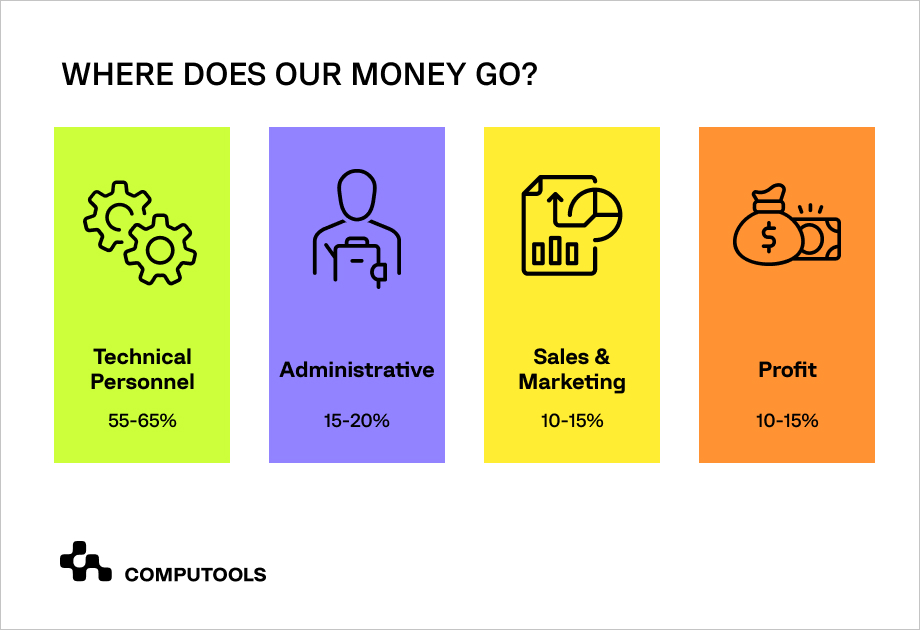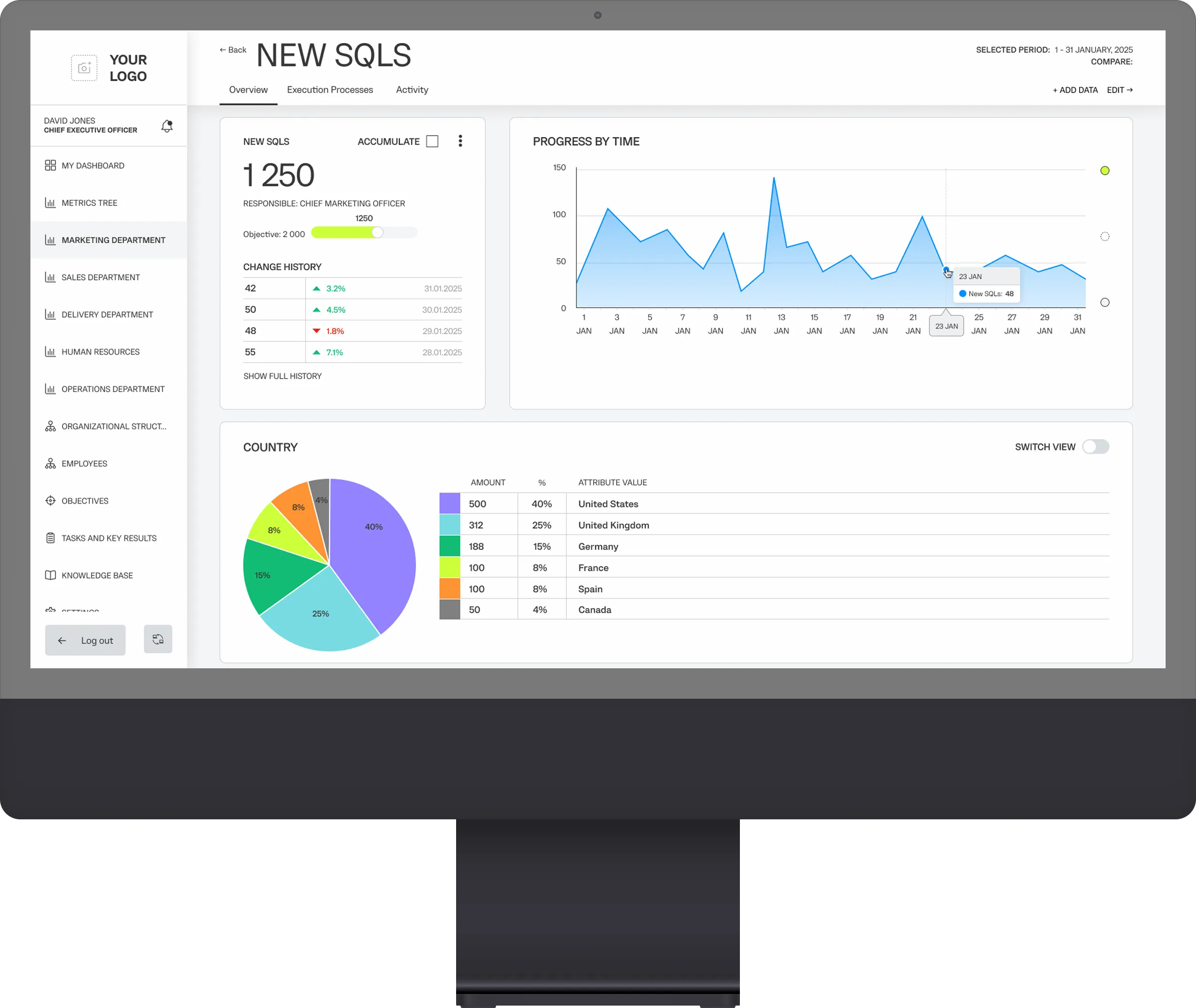An operating expense is one of a company owner’s various costs associated with running a business.
Such expenses can include:
• Advertising and marketing expenses
• Office supplies
• Salaries
• Utilities
• Equipment maintenance
• Good internet connection
• Corporate gifts and team building activities
Another vital thing to remember is that operating expenses (OpEx) should not be confused with capital expenditure (CapEx).
For example, purchasing a beverage machine for your company will be considered a capital cost. On the other hand, purchasing tea bags, sugar, cups, electricity payment, and equipment maintenance will fall under operating expenses.
So, operating expenses are day-to-day costs for running a business. And the more you want to scale your business, the more operational expenses you’ll have to face.
That’s why it`s important to optimize your operational expenses wherever possible when scaling your business. With the increase in operating expenditures, the profitability of your company decreases.
Why is scaling a business impossible without an increase in operational expenses?

Scaling a business means creating the conditions needed to energize and support your company’s growth. It means being able to grow without interference. It, however, requires planning, some funding, and a healthy environment in terms of competent employees, internal processes, technologies, and partners.
All of that is impossible without an increase in operating expenses.
However, an increase in operating expenses does not necessarily mean that a business isn’t profitable. Operational expenditures on marketing, research & development, HR, and in-house labor are inevitable for scaling.
Research and Development
Think of it as a long-term investment. Apple, for example, put a lot of effort into its Research & development operating expenses on the grounds of its competitive position in the marketplace and future growth.
Many IT companies can launch their own research projects; invest in their findings, which can then be used on client projects.

Computools
Software Solutions
Computools is an IT consulting and software engineering company that delivers innovative solutions to help businesses unlock tomorrow. Our clients represent a wide range of industries, including retail, logistics, finance, healthcare, and others.
Sales and Marketing
R&D and marketing spending contribute the most to the operating expenses, especially in the IT domain.
Companies can invest from 10% to 40% of their revenue in marketing their services. This is especially applicable to startups since they’re at the initial stages of their development and are actively looking to carve out a specific niche in their domain.
Operating expenses on sales and marketing can involve spending on advertising, SaaS solutions, and other business process automation tools.
Related Experience

Computools' Product: Scaler
Systemize and scale your business with our intuitive, secure Scaler Cloud Platform - all by yourself, guided by your own business intuition and our proven methodology
Operating expenses on in-house labor
The scaling of a company is also tied to the types of products and services it offers, which brings forth other operation expenses – in-house labor and employee education.
Their knowledge, skills, and competencies shape stellar services or products and generate revenue. How a company manages this resource determines its cash flow and financial well-being.
This expense also involves permanent or one-time consultations with experts, qualification upgrades for current employees, vacations, holidays and sick leave, etc.
All of it creates a healthy work environment that also benefits the company in the long run while requiring fixed expenses daily and monthly.
HR
The HR department is also tied to operating expenses. However, many business owners tend to neglect a budget for this department.
Company resources are always limited. Therefore, managers will strive to give them to those projects, areas, and departments that bring the best return on invested capital (ROI).
But the most significant benefit of operating expenses in HR lies in its name – humans. Without operational costs on HR, companies risk increased employee turnover, lost loyalty, and as a result, productivity falls.
Therefore, operational expenses are also critical to employee retention and are paramount for scaling.
Final words
The scaling of business always presupposes resource-intensive operating expenses. Therefore, understanding the principles of forming and managing a budget becomes essential for company growth.
When analyzing your operating expenses, the figures behind them should be clear to the company’s financial managers and Chief Officers.
This is achieved both through the compliance of the budget and by determining the cost-effectiveness of a particular project. Operating expenses must be balanced and planned based on expenditures from previous periods.
Summing up, operating expenses are formed considering the volume and quality of the services already provided. The more your company grows, the more operational costs you will incur. These costs can include:
• Ongoing maintenance and repairs;
• Buying of equipment
• Using third-party services;
• Recruiting and hiring IT staff;
• Managing payroll and taxes.
• Other expenses for different departments.
Computools offers a wide range of services from consulting & product design to product engineering and delivery teams. Hit us up at info@computools.com to learn more!










“Computools was selected through an RFP process. They were shortlisted and selected from between 5 other suppliers. Computools has worked thoroughly and timely to solve all security issues and launch as agreed. Their expertise is impressive.”